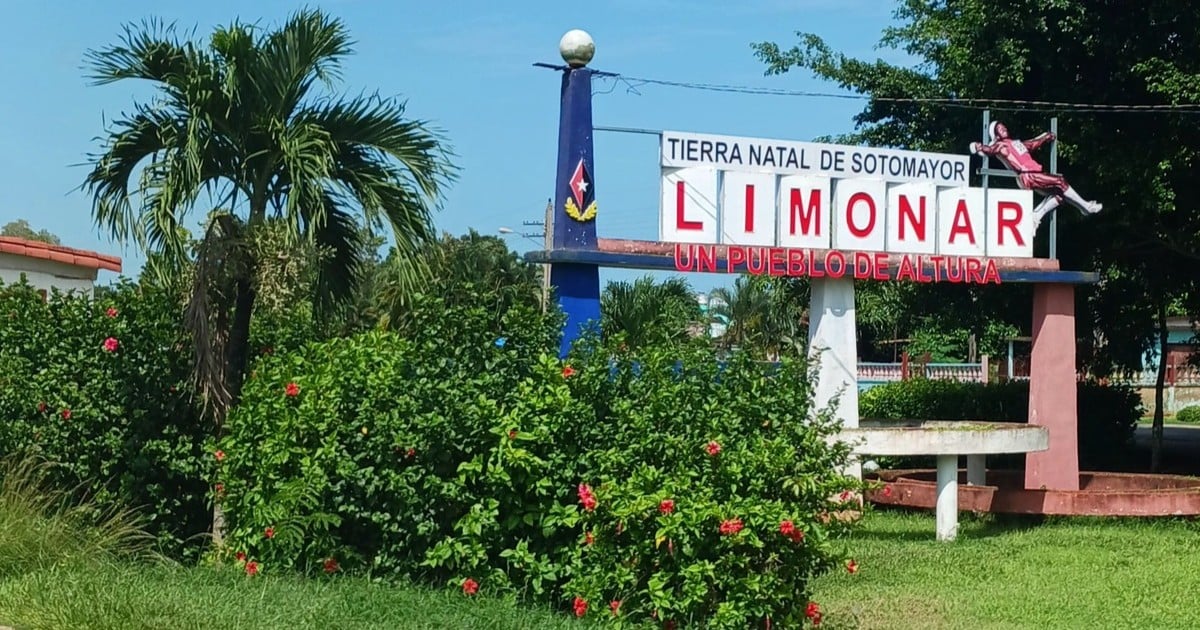The ongoing energy crisis in Cuba continues to fuel outrage among its citizens, particularly those residing in the provinces. Recently, a woman from Limonar, Matanzas, took to social media to report power outages lasting up to 22 hours straight, a situation she claims is unique to her area. Odalys Calero voiced her frustration on Facebook, describing the prolonged lack of electricity in her community.
"Attention Cuba! Once again, Limonar is without power for 22 consecutive hours, only getting it back for 50 minutes... and don't tell me this is the case throughout Cuba, because it's not true! Other provinces experience shorter, more planned outages. Here, the hours are excessively long and chaotic," she stated.
Calero criticized not only the frequency and duration of these blackouts but also what she perceives as an inequitable distribution of power services, questioning whether Limonar's residents deserve the same treatment as those elsewhere in the country.
"Aren't we Cuban too? This is cruel and disrespectful to the people who suffer day after day, unable to eat, bathe, or carry out any normal household tasks. If it's the same for all of Cuba, fine. If it's selective: NO!" she emphasized.
She concluded her appeal with a direct message to the authorities, urging them to heed the public's concerns: "People are tired, pay attention to the voice of the people. A Cuban from Limonar and from Cuba."
Shared Frustration: Outrage and Division Over Power Cuts
Odalys's complaint reflects a broader sentiment of unfairness that has sparked public debate and tension across the island. Last March, a controversial comment from Cienfuegos resident Mercedes Pérez went viral after she expressed satisfaction over power outages in Havana, viewing them as "compensation" for the provinces.
"I'm glad Havanans are without power, let them suffer and struggle like the rest of us in the provinces. Here, we never have electricity, 38 hours without it," she wrote.
While her remarks drew criticism for lacking empathy, some agreed with her frustration over what they see as preferential treatment for the capital. The response was swift: many advocated for unity among Cubans, reminding everyone that the true cause of the crisis is the political system, not the citizens of other regions.
"Havanans aren't to blame for what your president does; we're in the same boat, experiencing daily outages. Your president has power, but we don't," a woman replied.
Havana vs. The Rest: A Historical Divide
The grievances voiced by residents of provinces like Matanzas and Cienfuegos are rooted in a deeper belief that Havana receives privileged treatment regarding electricity distribution. This perception has intensified as the provinces endure outages lasting 18, 20, or even more than 22 hours, whereas in the capital, they are typically shorter and scheduled.
A clear example occurred last July when a Havana-based official newspaper announced power cuts with the headline: "Havana's Act of Solidarity for Cuba." The backlash was so critical and sarcastic that the publication had to change the title to "Act Responsibly to Contribute to the Country's Efforts."
This notion of "solidarity outages" in the capital is seen by many as a cynical attempt to disguise a structural inequality in power distribution. "The four hours they cut in Havana are what the heroic city and the rest of the country spend in darkness," quipped a Santiago resident on social media.
Concerns Over Consumption and Favoritism
Others, like Pedro de Jesús López Acosta, have claimed that Havana might be consuming up to 25% of the country's electricity, while the provinces endure nearly constant, extended outages. In a post, López Acosta described the situation as "shameless" and criticized the authorities' lack of empathy, who justify the capital's power cuts as "emergencies," ignoring the reality in the provinces.
This scenario has widened social fractures and general discontent, revealing how the energy crisis exposes the flaws in Cuba's management model. The regime's centralization, which has historically prioritized the capital due to its political and diplomatic significance, has left millions of Cubans outside Havana feeling neglected.
Beyond Electricity: Inequality, Neglect, and Frustration
The current power outages represent more than just an electricity crisis: they are a mirror of a divided and worn-out nation, where citizens face shortages of food, medicine, potable water, and now, electrical services. Odalys Calero’s words from a forgotten corner of Matanzas echo the widespread discontent: "This is cruel... This is selective treatment," she lamented.
Her plea joins those of countless other Cubans demanding equal treatment, energy justice, and respect for human dignity. In a Cuba where darkness is not only physical but also social and political, voices like hers are beacons of truth that many can no longer - nor wish to - ignore.
Understanding Cuba's Power Outage Crisis
What is causing the power outages in Cuba?
Cuba's power outages are primarily due to the country's profound energy crisis, exacerbated by mismanagement and outdated infrastructure. The centralization of resources and prioritization of Havana have also contributed to regional inequalities in power distribution.
How long do power outages last in provinces like Matanzas?
In provinces such as Matanzas, power outages can last as long as 22 hours at a time, with electricity being restored for only short periods. This contrasts with Havana, where outages are typically shorter and more scheduled.
Is there a sense of unfairness in power distribution across Cuba?
Yes, many Cubans feel that there is a significant inequity in how electricity is distributed, with Havana receiving preferential treatment over the provinces. This perception has fueled public outrage and heightened tensions.
